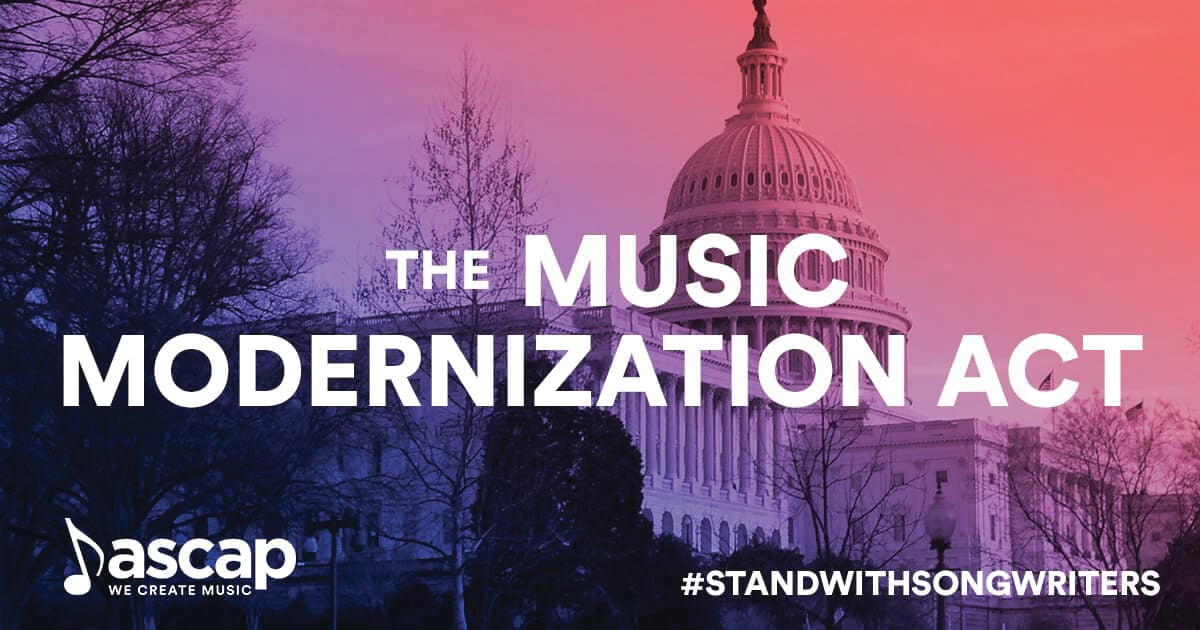
By now, I’m hoping you know that the most comprehensive overhaul of music copyright law and licensing in a generation is now the law of the land. Officially, it is called the Orrin G. Hatch–Bob Goodlatte Music Modernization Act, or Music Modernization Act, or simply MMA (no, not that MMA).
I know that this legal stuff can be as boring as 7-hour drive on a summer tour through West Texas with a broken air conditioner, and especially when Congress gets involved it can be hard to keep apprised of what was actually passed.
Here’s a primer: The MMA encompasses three pieces of legislation. First, the CLASSICS act, which now ensures that songwriters and artists will receive royalties on songs recorded before 1972. Second, the AMP Act, which improves royalty payouts for producers and engineers from SoundExchange when their recordings are used on satellite and online radio. And lastly, the MMA will improve how songwriters are paid by streaming services through a single mechanical licensing database overseen by the Music Licensing Collective (MLC) offering a publishing-side blanket license.
Now, it’s far more complicated than all of that. However, there are plenty of lawyers and industry players who have written more extensively about it than I have the space for here. In those articles you will read about how amazing this act is, how this fixes so many of the problems, how the MMA brings us into the 21st Century music business, and on and on.
That’s bullpucky. Do you feel richer yet? Are your PRO statements higher? How about your royalties? The fact is this: nothing has changed. Not yet, at least. The main part of the law that affects you and me – the independent songwriter/publisher/label/band – is that last part about the database. There are many of us concerned about the lack of price tag and planning for this database. Another aspect to mention is the MLC and its database will be overseen by a Board of Directors, and there is already in-fighting over exactly who will be and should be nominated to that entity. Also, that is not scheduled to begin until January 2021- at least two years away! So, we’re a long way away from implementation, and that’s if a database can be agreed upon and built, if it can be budgeted for, if the MLC is seated in time, and so on.
Alright, enough with the inside baseball. All of these things are still up in the air, but one thing is absolutely for certain: the monumental task of making sure your songs are registered properly and getting paid properly will now fall to you. Sure, there may be agencies who will do it for you, but you are the only one who has the information on your songs right now and it will be on you to get that information to an agent, in the database, etc. Trust me, as a music publisher and licensor, this is the stuff we deal with all day and I’d say that maybe 10% of bands/artists have this information ready right now. So, it’s time for you to get serious about spreadsheets, splits, about ISWC numbers, in short…. METADATA!
That’s right, how the MMA will affect you and your career will depend on your Metadata – which is why I call it the Metadata Modernization Act. Now, I can see you cringe, “Spreadsheets? C’mon man, I just want to jam! I’m a musician.” Nope. You are a creator, and with that comes responsibility. You can do this! Buck up soldier, I’m going to give the answers to the test.
There are programs to do this for you. Composer Catalog and Tunesmith.com among others, but honestly, they’re a bit pricey. So, open up Excel or Google Sheets and I’m going to give you the minimum columns you need, just copy and paste into the first row, put some pretty colors on it, and then fill it in accordingly.
- Song (Track) Composition Title
- Alternative Title
- Artist/Band Name
- Contact Information (email/phone)
- Genre
- Subgenre 1
- Composer (s) PRO info and % splits
- ISWC #
- Song blurb (what the song is about)
- Mood
- Keywords
- Sounds Like (three other artists that this could be paired with)
- Primary Instruments
- Instrumental tracks available (list stems)
- BPM/tempo
- Key
- Running time of song
- Lyrics
- Year of Copyright/year created
- Date recorded
- Date/Year of release publicly for sale or stream
- Current platforms Song is on
- Musicians / Instrumentation
- Producer(s)
- Mixer(s)
- Mastering
This is absolutely not an exhaustive list. Many existing companies have their Excel files and fields they deem mandatory. SoundExchange, Music Data Exchange (MDX), dotBC, etc. There are entire agencies dedicated to data with names like: DDEX, MetaBrainz, and more.
No one knows for sure what this new database will require for minimum viable data, but this will get you started. And you MUST get started.
The Metadata Modernization Act is upon us!
ABOUT THE AUTHOR
–Michael St. James is the founder and creative director of St. James Media, specializing in music licensing, publishing, production and artist development.